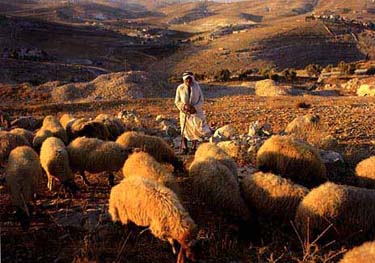Let It Flow
 Friday, July 31, 2015 at 08:07AM
Friday, July 31, 2015 at 08:07AM  “God is our refuge and strength, a very present help in trouble. 2 Therefore will not we fear, though the earth be removed, and though the mountains be carried into the midst of the sea; 3 Though the waters thereof roar and be troubled, though the mountains shake with the swelling thereof. Selah. 4 There is a river, the streams whereof shall make glad the city of God, the holy place of the tabernacles of the most High. 5 God is in the midst of her; she shall not be moved: God shall help her, and that right early.” Psalm 46:1-5
“God is our refuge and strength, a very present help in trouble. 2 Therefore will not we fear, though the earth be removed, and though the mountains be carried into the midst of the sea; 3 Though the waters thereof roar and be troubled, though the mountains shake with the swelling thereof. Selah. 4 There is a river, the streams whereof shall make glad the city of God, the holy place of the tabernacles of the most High. 5 God is in the midst of her; she shall not be moved: God shall help her, and that right early.” Psalm 46:1-5
John 7:37-39 In the last day, that great day of the feast, Jesus stood and cried, saying, If any man thirst, let him come unto me, and drink. 38 He that believeth on me, as the scripture hath said, out of his belly shall flow rivers of living water.
Verse four of Psalm 46 says, “There is a river.” Tonight, I want to preach about the river. The river goes back to the creative genius of God when He fashioned the world out of nothing. Just like every artist signs his painting, or builds something into his work that reflects his nature, God signs his handiwork. Whenever you see a river, you see a physical manifestation of the character of God. When you think of flow, you think of a river. A river bears more resemblance to eternity than any other aspect of God’s geography. The five oceans are deep and cover vast expanses of the earth’s surface, but eventually, a shoreline of sand or rocks imposes boundaries on every ocean. Mountains rise to majestic heights from 390 ranges in the world, whether they be located in the Rockies, the Andes or the Himalayans, but though they tower above tree lines and challenge the hardiest climbers to conquer their snowy summits, they fall woefully short of forever. The seven continents themselves stretch for thousands of miles through the arctic, temperate and tropical zones, but at some point they all stop at the water’s edge, and anywhere you travel, if you keep going you will always end up back where you started.
But the river is eternal. The source may be a subterranean spring or melting snow from a higher elevation. Although we can identify its source and know where it discharges its flow into another body of water, and although we can locate the banks through which it runs, we cannot stop it from coursing through the terrain. We can dam it, divert it, restrict it and change its course. We can even pollute it, pave over it or steal its power for electricity, but we cannot stop it. The force of flow will overcome any obstacle, it will circumvent any barrier, and it will overwhelm anyone who tries to halt its progress. There is a divine component to the river that you cannot find in the seas, mountains or earth. That’s why the Psalmist wrote that God is in the midst of the river.
Anytime the scriptures mention that God is in the midst of something, we ought to sit up and take notice. The Bible says that God is in the sanctuary; God is in the generation of the righteous; God inhabits the praises of Israel; and, God is in you, according to the Bible. If God is in the midst of the river, don’t seek Him in the seas, the mountains or the earth. Seek Him in the river. There is a river, the streams whereof shall make glad the city of God, the holy place of the tabernacles of the most High!
Every great city in history has been founded upon a river. Alexandria, Egypt had its Nile; Rome had its Tiber; Babylon had its Euphrates; London had its Thames and Paris had its Seine. (Toledo has its Maumee!) The river brought commerce; the river brought irrigation for the crops; the river brought transportation; the river brought a supply of water for a population to exist. The river is the water of life.
Let me tell you about a special river. The Congo River stands out as one of the most critically important river to the people of Africa. It is the main transportation source in Central Africa. The river along with all the streams that lead into it provide over nine thousand miles (14,500 kilometers) of navigable shipping routes in Central Africa. A tremendous amount of goods are transported on the river every day.
The Congo River is the deepest river known to man, reaching depths of 750 feet. It is an extremely powerful river; in fact it is the most powerful river in Africa. On average one million four hundred thousand cubic feet of water flows into the Atlantic Ocean every second from the river! There are approximately forty hydropower plants along the river that utilize this power to provide energy for the African continent.
There is a lot of turbulence on the surface of the river, but when you go deep, you get into the peace and tranquility that lies beneath the surface. There is a lot of dumping and refuse on the surface of the river, but when you go deep you get to the purity and clarity of the water.
The river is a living reminder that there has always been an eternal presence of God. He has made Himself knowable, findable, accessible and responsive. I know this because in the very beginning God moved upon the face of the waters. And, He made sure that a river flowed to the four corners of the earth.
Genesis 2:10-14 And a river went out of Eden to water the garden; and from thence it was parted, and became into four heads. 11 The name of the first is Pison: that is it which compasseth the whole land of Havilah, where there is gold; 12 And the gold of that land is good: there is bdellium and the onyx stone. 13 And the name of the second river is Gihon: the same is it that compasseth the whole land of Ethiopia. 14 And the name of the third river is Hiddekel: that is it which goeth toward the east of Assyria. And the fourth river is Euphrates.
First mention of rivers in the bible an important first mention principle. The first principle is one that sets the pattern for understanding future references to a concept both spiritually and naturally. These names are important because names in the Bible usually denote function, character and purpose.
- · Pishon = changing or doubling;
- · Gihon = grace or fast sudden overcoming;
- · Hiddekel – (later called Tigris) = sharp voice;
- · Euphrates
Every name describes an attribute of God.
- Like the Pison, God is always better than you think He is.
- Like the Gihon, His grace is sudden and overcoming.
- Like the Tigris, He speaks with a sharp voice. Indeed, “The word of God is sharper than a two-edged sword…”
- Like the Euphrates, the Spirit of the Lord produces the spiritual fruit of love, joy, peace, long-suffering, temperance, gentleness, meekness, kindness and goodness. It’s all in the river!
I don’t know what kind of image you conjure up in your mind when you think of God. Some think of God as a long-bearded hermit that lives up in a mountain cave somewhere. Some think of God as flitting up among the stars. Some even think of God as still in a human body in an artist’s rendition of Jesus Christ.
But the Bible gives us a totally different picture. 2 Corinthians 5:16-18 says, “Wherefore henceforth know we no man after the flesh: yea, though we have known Christ after the flesh, yet now henceforth know we him no more. 17 Therefore if any man be in Christ, he is a new creature: old things are passed away; behold, all things are become new.” You need to think of God as a vast, overwhelming river that is flowing through the world even today.
Dry and Barren Land of Today’s World
There is a river! God never intended for us to live in a dry, barren and thirsty land. He never intended for mankind to have a famine for the Word of God. But, because people have moved away from the river of God, They have lost the richness that life was supposed to have. Instead of a river, this culture has religion. You say, “No. This world is secular, not religious!” But secularism is actually a religion. Humanism is a religion. Atheism is a religion. Liberalism is a religion.
In his book The Varieties of Religious Experience, the psychologist William James defined religion as “the feelings, acts, and experiences of individual men in their solitude, so far as they apprehend themselves to stand in relation to whatever they may consider the divine”. “Divine,” according to James, meant “any object that is godlike, whether it be a concrete deity or not” to which the individual feels impelled to respond with solemnity and gravity.’” And so, liberals are caught in their own web. One of their own says that their beliefs constitute just as much of a religion as any other faith-based belief. But the beliefs of this secular world are not rivers of living water, but man-made cisterns.
Jeremiah 2:11-13 Hath a nation changed their gods, which are yet no gods? but my people have changed their glory for that which doth not profit. 12 Be astonished, O ye heavens, at this, and be horribly afraid, be ye very desolate, saith the LORD. 13 For my people have committed two evils; they have forsaken me the fountain of living waters, and hewed them out cisterns, broken cisterns, that can hold no water.
- Abortion rights: The real result is total disrespect for human life.
- No prayer in school: No prayer, except when being shot at.
- Sex education: Sexual expertise, but moral ignorance.
- Rights of the LGBT crowd: Deviancy is now celebrated.
- Multiculturalism: Everybody is right, thus, nobody is right.
- Historical revisionism: Everything done in the past was wrong.
- Moral relativism: No one has the right to judge anybody else.
- Progressive education: Let us play with the minds of children.
- Permissive parenting: Never say no. If you say it, don’t enforce it.
- Freedom of expression: I can say or print anything I wish.
- Political correctness: You cannot say or print anything you wish.
Religions are nothing more than observances and ceremonies. They serve to remind us that something happened in the past, but now is only good for the history books. You wonder why many people make such a big celebration out of Christmas and Easter? Because their faith is only an annual reminder of an historical event that now holds little or no significance to their day-to-day existence.
But God, if He is God at all, will not be confined to museum shelves and historical societies! He does not live just in that big family Bible on the coffee table.
Revelation 1:5-8 And from Jesus Christ, who is the faithful witness, and the first begotten of the dead, and the prince of the kings of the earth. Unto him that loved us, and washed us from our sins in his own blood, 6 And hath made us kings and priests unto God and his Father; to him be glory and dominion for ever and ever. Amen. 7 Behold, he cometh with clouds; and every eye shall see him, and they also which pierced him: and all kindreds of the earth shall wail because of him. Even so, Amen. 8 I am Alpha and Omega, the beginning and the ending, saith the Lord, which is, and which was, and which is to come, the Almighty.
“Saith the Lord, which is, and which was, and which is to come, the Almighty.” Evangelist David Smith said, “Whatever God was, He still is! If He was a healer, He still is a healer! If He was a savior, He still is a savior! If He was a miracle-worker, He still is a miracle-worker! If you had an experience with God somewhere in your past, you need to cheer up because He can do for you today what He did for you in the past!
“Not only that, but whatever He is today, He is going to be tomorrow! He not only IS my healer, He WILL BE my healer! He has a source that will never run dry, he is a force that will never be stopped, He is headed to a destiny that will never be subverted.
The Spirit of God flows like a river! I say, let it flow!
Buckeye Lake
Some of you may not be aware of the current crisis of Buckeye Lake. 178 years ago, engineers built a dam of earthworks 4.1 miles long to create this lake. Over the years, 347 homes have built on top of these earthworks, plus boat docks and slips, and even swimming pools. This spring, the Army Corps of Engineers issued a report that these structures seriously compromised the dam and that it was in imminent danger of breaking. If it broke, over 3000 people could be flooded out and there would be loss of life. Not willing to take that chance, they lowered the water level to reduce the pressure on the dam until they could fix it. The repairs could last as long as 3-5 years. In the meantime, the lake is virtually useless for recreational activities, and the people of Millersport, especially the businesses are suffering.
Now, let me now put a spiritual spin on this situation. I want Buckeye Lake to be fixed, but I think the earthworks, or the “things of the earth” have stopped the flow of revival waters long enough. I want the spiritual dam to break! I want the restrictions to fall apart! I want the river of the Spirit of God to burst through the man-made barriers and inundate Ohio with the flow of revival!
There is a river! Rivers were meant to flow! We cannot, we must not turn the Holy Ghost flow into the backwaters of selfishness and personal kingdom building! Paul said, “Not boasting of things without our measure, that is, of other men’s labours; but having hope, when your faith is increased, that we shall be enlarged by you according to our rule abundantly, To preach the gospel in the regions beyond you…” 2 Corinthians 10:15-16
Let me do a little superintending here. Bro. Ken Dillingham, our Ohio North American Missions director, told me that Ohio is 65-70% urbanized. That means that our vision to evangelize Ohio needs to be upgraded. Instead of thinking geographically, we need to think demographically. We may have churches within 2 or 3 miles of each other. We can’t do this unless we have strong ethics. We are not competing with each other, we are complementing each other! Bro. Chavis’ message of “The Problem with Brothers” needs to resonate! We need to teach our people to win the unchurched, not reach into the church down the road!
Ezekiel saw the river.
Ezekiel 47:1-12 (KJV)
1 Afterward he brought me again unto the door of the house; and, behold, waters issued out from under the threshold of the house eastward: for the forefront of the house stood toward the east, and the waters came down from under from the right side of the house, at the south side of the altar. 2 Then brought he me out of the way of the gate northward, and led me about the way without unto the utter gate by the way that looketh eastward; and, behold, there ran out waters on the right side.
3 And when the man that had the line in his hand went forth eastward, he measured a thousand cubits, and he brought me through the waters; the waters were to the ankles. 4 Again he measured a thousand, and brought me through the waters; the waters were to the knees. Again he measured a thousand, and brought me through; the waters were to the loins. 5 Afterward he measured a thousand; and it was a river that I could not pass over: for the waters were risen, waters to swim in, a river that could not be passed over.
Ezekiel’s vision of the river is teaching us something of critical importance. There are two things going on. First, the river is flowing and rising. Second, you will not feel the effects of the river until you get in the water! Some people say, “I don’t feel a thing! It’s not happening to me! I don’t understand why everyone is getting so excited.
Well, my friend, as long as you want to stay high and dry, it’s never going to happen to you! If you don’t want to get wet, if you value your dignity more than you value results, if you choose to remain a spectator, rather than a participator, that’s your choice. But, your choice has become a reason why you don’t believe anything is happening! You can just as easily choose to believe.
Let me say that I still believe in the essentiality of the Holy Ghost, speaking with tongues! I believe the very premise of New Testament teaching was to have Spirit-filled people living the life, walking the talk and talking the walk! A de-emphasis on the Holy Spirit can only lead to an emphasis on fleshly ability! Whenever someone says, “Calm down. We don’t need this running, shouting and dancing.” I say, “You can’t control the flow! There is a force, a power, a propulsion connected to the river. If you want the flow, you’re gonna have to get in the river!
We are Apostolic Pentecostal! We were born this way! If you stop our freedom of worship, you cause the very source of our joy to dry up!
Healing and Restoration
Ezekiel not only saw the river, he also said that there was healing and restoration in the river! The river was not just for recreational purposes! Something substantial happens when we access the river!
6 And he said unto me, Son of man, hast thou seen this? Then he brought me, and caused me to return to the brink of the river. 7 Now when I had returned, behold, at the bank of the river were very many trees on the one side and on the other. 8 Then said he unto me, These waters issue out toward the east country, and go down into the desert, and go into the sea: which being brought forth into the sea, the waters shall be healed. 9 And it shall come to pass, that everything that liveth, which moveth, whithersoever the rivers shall come, shall live: and there shall be a very great multitude of fish, because these waters shall come thither: for they shall be healed; and everything shall live whither the river cometh. 10 And it shall come to pass, that the fishers shall stand upon it from En-ge-di even unto E-neg-la-im; they shall be a place to spread forth nets; their fish shall be according to their kinds, as the fish of the great sea, exceeding many. 11 But the miry places thereof and the marishes thereof shall not be healed; they shall be given to salt. 12 And by the river upon the bank thereof, on this side and on that side, shall grow all trees for meat, whose leaf shall not fade, neither shall the fruit thereof be consumed: it shall bring forth new fruit according to his months, because their waters they issued out of the sanctuary: and the fruit thereof shall be for meat, and the leaf thereof for medicine.
Miracles
Do you need a miracle? There are miracles in the river! You cannot surgically remove miracles from the river, thinking that you can have all the good stuff without getting wet, without ruining your programs and plans and prideful purposes!
There is a river!
The distance from you to the river is as far as this altar. It is as far as your faith will take you.
John 7:37-39 In the last day, that great day of the feast, Jesus stood and cried, saying, If any man thirst, let him come unto me, and drink. 38 He that believeth on me, as the scripture hath said, out of his belly shall flow rivers of living water. 39 (But this spake he of the Spirit, which they that believe on him should receive: for the Holy Ghost was not yet given; because that Jesus was not yet glorified.)
There is a river, and it flows from deep within; There is a fountain, that frees the soul from sin; Come to this water; there is a vast supply; There is a river, that never shall run dry.
John 4:13-14 Jesus answered and said unto her, Whosoever drinketh of this water shall thirst again: 14 But whosoever drinketh of the water that I shall give him shall never thirst; but the water that I shall give him shall be in him a well of water springing up into everlasting life.
There was a thirsty woman,
Who was drawing from a well
You see her life was ruined and wasted
And her soul was bound for hell
Oh but then she met the Master
And He told about her sin
And he said if you drink this water,
You’ll never thirst again
There is a river, and it flows from deep within; There is a fountain, that frees the soul from sin; Come to this water; there is a vast supply; There is a river, that never shall run dry.
What happens when you step into a river?
- Transformation: You will leave the place you once occupied. (God will transform you.)
- Empowerment: You will be moved by a power outside of yourself. (God will supply the change power.)
- Surrender: You can either get in or get out, but you cannot control where the river goes. (God controls.) Do you remember that scripture in Genesis about the rivers that flowed out of Eden? And then, do you recall the river that Ezekiel saw flowing out of the temple of God? If you step into the water, and if you wade out a little bit deeper, the current is going to carry you all the way to the throne of God!
Revelation 22:1-2 And he shewed me a pure river of water of life, clear as crystal, proceeding out of the throne of God and of the Lamb. 2 In the midst of the street of it, and on either side of the river, was there the tree of life, which bare twelve manner of fruits, and yielded her fruit every month: and the leaves of the tree were for the healing of the nations.







